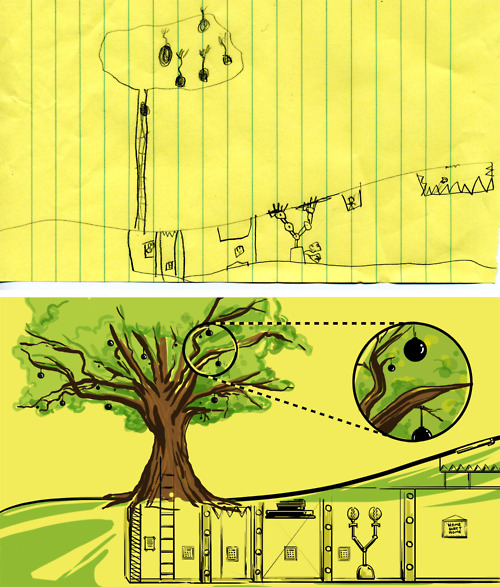If you’ve spent much time blogging about religion or belief or the lack of it, you’re aware of Sam Harris. He’s a neuroscientist who has become well-known as one of the public faces of what’s known as “The New Atheism.” He’s the author of The End of Faith, Letter to a Christian Nation, and a few other notable books. Back in my religious blogging days, I used to discuss that kind of stuff a lot. Belief. Non-belief. Atheism. Agnosticism.
Kinda hoped I’d get away from it with the fatherhood blogging thing, but guess what? I haven’t.
That’s because Harris wrote a quite provocative blog post last week about the potential virtues (and potential problems) with LSD and other psychedelic drugs. He wrote it not only from his perspective as a neuroscientist, but also as a father. In that he realizes everyone will take some form of drugs in his or her life — somewhere along the spectrum from caffeine to crack cocaine. And as a father, he wants his daughter to take the right drugs.
That means he’s OK with her experimenting with LSD. A short selection from a long, long piece:
I have a daughter who will one day take drugs. Of course, I will do everything in my power to see that she chooses her drugs wisely, but a life without drugs is neither foreseeable, nor, I think, desirable. Someday, I hope she enjoys a morning cup of tea or coffee as much as I do. If my daughter drinks alcohol as an adult, as she probably will, I will encourage her to do it safely. If she chooses to smoke marijuana, I will urge moderation.[2] Tobacco should be shunned, of course, and I will do everything within the bounds of decent parenting to steer her away from it. Needless to say, if I knew my daughter would eventually develop a fondness for methamphetamine or crack cocaine, I might never sleep again. But if she does not try a psychedelic like psilocybin or LSD at least once in her adult life, I will worry that she may have missed one of the most important rites of passage a human being can experience.
This is not to say that everyone should take psychedelics. As I will make clear below, these drugs pose certain dangers. Undoubtedly, there are people who cannot afford to give the anchor of sanity even the slightest tug. It has been many years since I have taken psychedelics, in fact, and my abstinence is borne of a healthy respect for the risks involved. However, there was a period in my early 20’s when I found drugs like psilocybin and LSD to be indispensable tools of insight, and some of the most important hours of my life were spent under their influence. I think it quite possible that I might never have discovered that there was an inner landscape of mind worth exploring without having first pressed this pharmacological advantage.
Of course, the United States has a drug problem. It’s a multi-headed monster, and one I’m not nearly qualified to address, other than to say our criminal justice system is broken in how it deals with drug offenders, and there’s something wrong with our legal and political system when a seriously harmful drug like tobacco is legal and used everywhere but you can go to jail for taking LSD, which isn’t addictive and, I’m told, isn’t that bad for you (other than the possibility of a bad trip, which Harris talks about at length in the piece, and which he says carries the “potential for for extremely unpleasant and destabilizing experiences”).
No, I’ve never taken LSD. Never tried marijuana either, or any illegal drug. I’m a regular Boy Scout. But I drink three cups of coffee every day and I love it.
But if Harris could choose the drugs his daughter takes — knowing she’ll probably enjoy caffeine in her coffee or tea, and will likely drink alcohol in moderation — he hopes some kind of hallucinogenic drug finds its way onto that list, in some form or another. Because of the insight it brings. Because in just a few hours under the influence, they have the potential to reveal “depths of awe and understanding that can otherwise elude us for a lifetime.”
I’m still trying to wrap my mind around this argument without the aid of hallucinogens. Most of us will probably introduce our kids to caffeine some day. Or to alcohol. And certainly to other legal pharmacological drugs. Most people operating within a religious system (which I am) will be quick to dismiss Harris as a crazy atheist or some sort of modern-day hippie. But is there something more to think about in his argument? Is there some truth in there?
Besides the obvious legal prohibitions (and that’s a HUGE “besides”), why is it OK to introduce your kids to an addictive drug like caffeine but not to LSD? Especially when both can offset the potentially harmful side effects with beneficial ones.
I can’t believe I just asked that question, seriously. It makes me feel like a bad father and I want to edit it out. But I’m leaving it in because it’s an interesting thought experiment.
If you get a chance, read the piece. What do you think about Harris’ stance?

